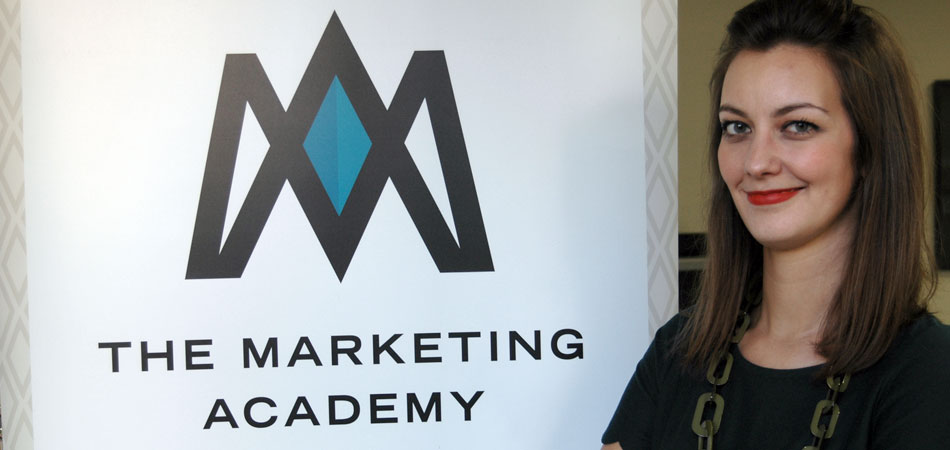
From greenwashing to ‘green hushing’: what’s behind the recent silence around sustainability?
Businesses must find the balance between action and transparency to work toward a more sustainable future.
Senior Consultant, Capgemini Consulting


Natasha Pergl : I’ve always been fascinated by what makes people tick and how things operate which led me into a career in marketing and then consulting, which seemed like the ideal path for someone obsessed with making things better! There’s never been a more exciting time to be in marketing – we live in households with 7.4 connected devices on average and we spend more time on our phones than sleeping so it’s no wonder that organisations are finding it harder and harder to cut through the distraction and get the attention of their desired audiences. As a consultant, I’m now the other side of the “marketing fence” and it’s really exciting using best practice from across industries to help marketers make this happen.
Natasha Pergl : Always being curious, externally focused on new trends and disruptions in the market and really championing the customer within the business – even when challenged. For long-term success, it’s down to senior marketing leaders to create more opportunities for their teams to take risks so they can be much more responsive to market disruption.
Natasha Pergl : Through the Marketing Academy, I’ve been lucky enough to meet many inspiring business and marketing leaders from the likes of ITV, Sony, Nike, Diageo and the British Army to name but a few. What they all have in common is a real respect for putting people first (both customers and employees) and a desire to think bigger and more imaginatively than their competitors. I love the TED talk by Simon Sinek “Start with why – How great leaders inspire action” because it’s a really good reminder that people don’t buy what you do; they buy why you do it.
Natasha Pergl : Broadcast communications are a thing of the past and organisations are being forced to communicate in much more dynamic and interesting ways with their customers. There has also been an explosion in disruption from new entrants such as Uber and Airbnb who are completely changing the market and cutting out competition by transforming the way business is done in these sectors. The best brands have strong levels of emotional engagement with their customers and this comes from knowing their audience, creating really exciting, compelling content and sharing insight across the business helping to forge closeness between departments that might not typically speak to each other. Integration across organisations is critical so innovations can be capitalised on as quickly as they’re spotted.
Natasha Pergl : It’s my job to bring insight and knowledge to the clients that I work with so I spend a lot of time keeping up to date with what’s happening, new ideas and innovations. There is always so much to read so my advice is to narrow your focus to a few areas of interest and expertise and carve out time in the day to digest the content properly and form your own point of view. There are also great apps out there (Flipboard and Feedly) which can curate content based on chosen topic areas. Our thought leadership at Capgemini is at the cutting edge of what’s happening in the digital space. Hootsuite and Tweetdeck are brilliant ways to organise your Twitter feeds into categories or specialism areas especially for events that you can’t attend.
Marc Lewis (School of Communication Arts Founder) said “always be a squirrel – keep learning, it’s the first rule of creativity” which is what I aspire to. Being able to connect the dots and make patterns is a crucial and enjoyable part of my job!
Natasha Pergl : In my current role, I no longer manage relationships with agencies. However, I think more generally, it’s increasingly important for agencies to bring fresh perspectives and insights to the briefs given to them and for them to work really closely with marketers as one team to help them innovate and stay ahead of the competition but also act in-tune with a consistent brand and tone of voice to avoid mixed messages in the market.
Natasha Pergl : Often success speaks for itself and generally, campaigns are more successful when marketers and agencies work really closely together. As with any relationship, it’s a two way process and lots of time should be invested in getting to know each other and building a positive culture where everybody is clear on what’s expected with the freedom to be bold and make new suggestions. Agencies should proactively challenge marketers to think outside the box.
Natasha Pergl : When helping companies tackle change, the hardest part is often the “people stuff” and taking employees on a journey because ultimately they are the ones that make stuff happen on a day to day basis. It’s these projects that always make me proud because it takes time to understand their needs, win their trust and ultimately get their buy-in and support for embedding new initiatives within their business.
Recently at one of the UK’s largest supermarkets, I was really inspired to see the marketing leadership team adapt and evolve their business structure to incorporate digital based on recommendations we had made. This represented a huge shift in mindset and moving forwards, means that marketers will be better equipped with the right skills to execute integrated campaigns across relevant channels.
Natasha Pergl : The marketing department is the custodian of the customer and should be actively using this role to raise the profile of marketing within their organisation. CEOs will no longer tolerate functions that don’t work together and marketing departments can help connect teams to share insight across the business and build trust. If functions work closely together and are agreed on metrics that matter and anticipated return on investment, then there will be more flexibility to try new things and adapt. Business models need to be really flexible or they face extinction and marketers can really help drive positive change.
Natasha Pergl : I’ve asked myself this question a lot over the years! I used to worry that changing jobs made you a “jack of all trades and a master of none” but I’m glad I had exposure to global and local roles within media, marketing and consulting in my twenties. I’ve got a real passion for understanding people, leadership, marketing and new technologies so I focus on building knowledge in these areas.
You can find me hovering in the digital space here – @natashapergl
creativebrief partner the Marketing Academy is a non-profit organisation which provides a unique forum for industry leaders, marketing gurus, entrepreneurs and inspirational people volunteer their time to inspire, develop and coach the next generation of future leaders. The Marketing Academy gift a maximum of 30 ‘Scholarships’ each year to the fastest rising stars in the marketing, advertising and communications industries. A team of high profile mentors and coaches develop these stars through a process of mentoring, coaching, networking and personalised learning. 86 mentors, 30 Coaches, 20 Judges, 36 companies and an owl called Merlin all provide their time, resources and knowledge to assist in shaping the minds of our future leaders. Furthermore as a vital part of their curriculum all Scholars volunteer at least one day per year through our Donate28 initiative to work with charities who need bright young marketing minds. For a full list of the individuals involved, see the Sherilyn Shackell interview.
Looks like you need to create a Creativebrief account to perform this action.
Create account Sign inLooks like you need to create a Creativebrief account to perform this action.
Create account Sign in